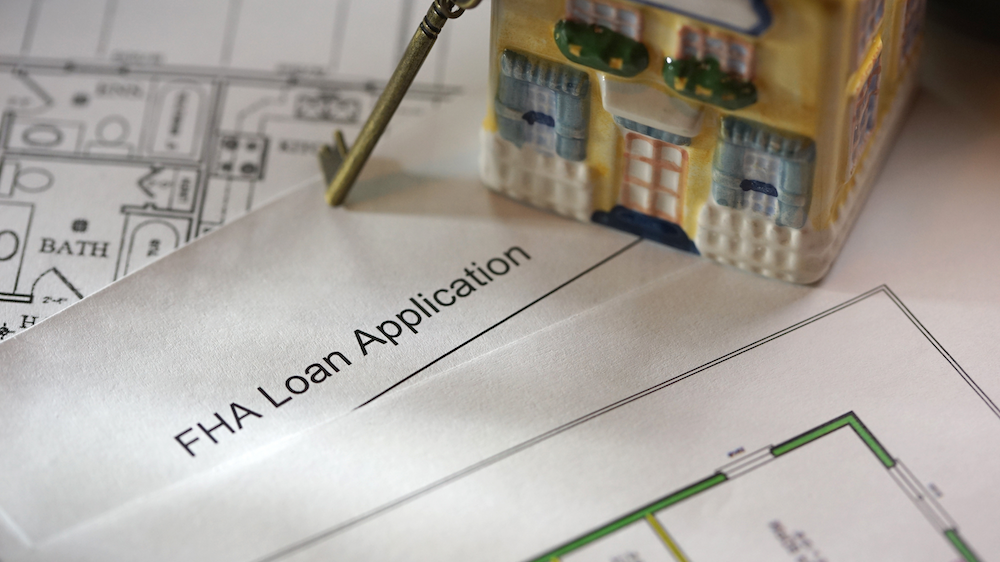
2021’s Best FHA Lenders

Applying for a loan can be tricky, especially when you have a less-than-ideal credit rating. Most conventional lenders may turn you away, require a sizable down payment, or even give you exorbitantly-priced mortgage rates to offset their risk.
However, that doesn’t mean there are zero options for the credit-challenged potential homebuyer. Enter the government-insured FHA loan, which caters directly to buyers with low credit scores.
Qualifying for an FHA loan greatly expands your pool of potential lenders. However, this also leaves you with a new problem: how do you find the best FHA lenders for your specific circumstances? Unfortunately, the answer is a little different for everyone. It all depends on what you want from your specific FHA lender.
This guide discusses what FHA loans are, how they work, and our picks for the best FHA lenders in the United States!
FHA Loan Explained
An FHA loan is a government-backed mortgage that’s insured by the Federal Housing Administration (FHA), which is part of the U.S. Department of Housing and Urban Development.
Because mortgage lenders are protected from significant financial loss, they’re more likely to adjust their loan terms and requirements to accommodate first-time homebuyers with low credit scores and little savings. That means home buyers with credit scores as low as 500 can still qualify for home loans without needing to put too much into their down payment.
However, this isn’t to say that potential home buyers can get an FHA loan for any property. FHA loans are primarily used to purchase or refinance a single-family home. Multifamily dwellings and condominiums are also covered under certain FHA loan types, but these may have a different set of requirements.

How FHA Loans Work
Loans backed by the Federal Housing Administration have a few distinct advantages, such as favorable interest rates and a low down payment. However, one major consideration applicants need to make before starting their application process is mortgage insurance.
Because FHA loans have a low down payment requirement that’s less than 20% of the total loan amount, buyers need to pay for something called FHA mortgage insurance. Specifically, buyers must cover two types of premium payments under their FHA mortgage insurance:
- Upfront mortgage insurance premium: This is equal to 1.75% of the loan amount and is paid to the mortgage lender upon approval. This premium can also be folded into the financed amount.
- Annual mortgage insurance premium: This ranges from 0.45% - 1.05%, depending on your FHA loan length, total loan amount, and the initial loan-to-value ratio. Payments are divided by 12 and paid out to lenders monthly over one full year.
In addition to insurance-related rates and fees, buyers will also need to think about their closing costs, which are paid when a real estate deal is closed. These costs can include title insurance, attorney fees, appraisals, taxes, and more. Do note that FHA closing costs are significantly cheaper than those from conventional loans. This is because FHA mortgage lenders are limited to charging a maximum of 5% of the total home loan amount.

FHA Loan vs Conventional Mortgage
Unlike a conventional loan, FHA loans are backed by the Federal Housing Administration. Because of this, they can have more relaxed credit score requirements alongside fixed down payments and interest rates.
But how exactly do these two loan types measure up when in a side-by-side comparison? Here’s our easy-to-read chart.
| Conventional Loan | FHA Loan | |
| Minimum Credit Score | 620 | 500 |
| Down Payment | 3% - 20% | 3.5% for a credit score 580+10% for credit scores between 500 - 579 |
| Term Length | 10, 15, 20, and 30-year terms | 15 or 30-year terms only |
| Mortgage Insurance Premiums | Private mortgage insurance can cost anywhere from 0.55% to 2.25% | Upfront premiums are 1.75%, while annual premiums range from 0.45% - 1.05% |
| Interest Rate | Interest can be variable or fixed-rate | Fixed-rate only |

Types Of FHA Loans
Whether you’re buying a starter home or considering purchasing something roomier for a growing family, there are many types of home loans available. But what happens if you don’t meet the min. credit score requirement for a conventional loan?
Lucky for you, the FHA backs a wide array of loan products that suit almost everyone. Here are some FHA-approved options that you may want to consider when you shop around:
- FHA 203(k) Loans: This FHA loan is the bread-and-butter home loan that allows folks to do one of two things: purchase a home or refinance their current mortgage rates. FHA 203(k) loans come in two subtypes, standard and limited.
Limited FHA loans are easy to apply for but have a hard limit of $35,000 for repairs or improvements. Standard loans require borrowers to fill out more paperwork for higher borrowing limits.
- Home Equity Conversion Mortgage (HECM): The FHA backs many unique loan types, and the HECM is one of them. A HECM allows homeowners aged 62 and up to withdraw a portion of their home equity, given that they’ve built a substantial amount upon application. However, the actual amount withdrawn from their home equity differs based on current interest rates and the home’s current appraised value.
- FHA Energy Efficient Mortgage (EEM) program: Looking to buy an energy-efficient home? The FHA will back lenders on your behalf if you want to purchase an EnergyStar-certified dwelling. These FHA loans are also applicable to “green” energy-efficient updates to an existing home.
- FHA Section 245(a) loan: Lenders sometimes offer loan products that start small and grow with time. The FHA’s Graduated Payment Mortgage is one of them. These loans are designed to help first-time owners whose incomes will increase over time by billing smaller monthly payments that gradually increase over the years.

FHA Loan Limits
Because of how the loan works, FHA lenders in a specific area must adhere to a standardized minimum and maximum loan amount.
As of 2021, FHA loans covering single-family dwellings start at a minimum of $356,362 and can reach up to $822,375, depending on local mortgage rates and living costs. Properties purchased in Alaska, Hawaii, Guam, and the Virgin Islands have different limits due to the cost of construction being significantly more expensive.
Do note that the FHA updates their minimum and maximum loan amounts yearly, as mandated by the Federal Housing Finance Agency.
Qualifying For An FHA Loan
Qualifying for an FHA loan is quite simple when compared to conventional loans. However, individual FHA lenders may have specific stipulations that may deter first-time buyers and complicate the application process. This section describes the minimum requirements to qualify for an FHA loan.
Credit Score
Your credit score is taken from your credit cards and general debt repayment performance.
As we mentioned earlier, the minimum credit score to qualify for an FHA loan is 500. That said, applicants may still be required to apply with credit scores up to 580. A word of warning for folks with a credit history and rating up to 579, though: you may be required to shell out a larger down payment upfront.

Minimum Down Payment
Because FHA lenders want to protect themselves from taking on too much financial risk, they reward borrowers with a better credit history. That means if you have a credit score of 580+, you’ll receive a favorable mortgage rate alongside a low down payment (around 3.5% of the purchase price.)
On the other hand, applicants with a credit score between 500-579 have to make sure they can pay their lenders at least 10% of the loan’s total cost.
However, these home loans are quite forgiving with their terms. FHA lenders will allow applicants to use gift money to cover their down payment. You only need to provide the following information:
- The donor’s contact information
- Their relationship with the borrower
- The amount they’ve donated
- A letter stating they require no repayment
Debt-To-Income Ratio (DTI)
FHA lenders require applicants to have a debt-to-income ratio lower than 50%, meaning that your monthly debt payment must be less than half of your untaxed income. This figure includes pre-existing debts like car loans and student loans.
Property Appraisal And Approval
Once the FHA takes a look at your credit score, DTI, and capability of making your down payment, it checks if the home you’re trying to purchase meets minimum property requirements. This is done so the FHA knows the property is livable and won’t put you in any danger.
Borrowers may choose to have their appraisals done “as is” or after renovations have concluded. Note that these inspections are separate from property appraisals done by a mortgage lender.

Best FHA Lenders In 2021
Generally speaking, loan products change based on the applicant and specific lender – and the same logic applies to FHA loans. That means that even applicants with less-than-ideal credit scores are still evaluated on a spectrum instead of a “one size fits all” solution from an FHA lender.
Taking the time to shop around before making any commitments is integral to finding the best FHA lenders for your specific circumstances. Here are some of our top picks for the best FHA lender:
Best For Lower Credit Scores: Carrington Mortgage Services
This FHA lender has a long-standing history of financing both conventional and government-backed loans. It also offers lower interest rates compared to other lenders. Furthermore, Carrington Mortgage Services offers a discount point service, making this lender an attractive choice for borrowers on a budget.
Pros
- 500 min. credit score
- Has an online application
- Low interest rate even with bad credit
- Will consider factors other than credit score
Cons
- Doesn’t have an online mortgage rate calculator
- Doesn’t offer home equity loans
- May have higher closing costs than other FHA lenders
Best Online-Only FHA Loans: Rocket Mortgage by Quicken Loans
Rocket Mortgage by Quicken Loans is on our shortlist of the best FHA lenders because of its streamlined, exclusively-online service. This FHA lender pioneered shifting the cumbersome process of loan applications into a simplified one-step action.
Pros
- One of the best customer service in the industry
- Online mortgage application
- Offer down payments as low as 0%
Cons
- No physical address
- Min. credit score is 580
- No home equity loans
- Borrowers need to pay an origination fee

Best Lender For Flexible Loan Terms And Payments: Bank Of America Mortgage
Bank of America deals in loans and customer relations. That means it has a robust rewards system for long-time clients, making them one of the best choices for lenders that offer FHA loans. Its rewards systems usually offer discounts of some sort, which encourages clients to do all their banking at Bank of America.
Pros
- Has online application
- Many accessible physical locations
- Adjustable rates
- Excellent app integration
Cons
- Min. credit score is 580
- Doesn’t offer renovation loans
Best “Traditional” FHA Lender: Chase
As the consumer and commercial extension of JPMorgan Chase & Co, Chase has a vast array of services available to the potential homebuyer, making it one of the best FHA lenders in our books. Additionally, this lender offers many cheap down payment loan options.
Pros
- Low down payment options without needing to pay insurance
- Has homebuyer education programs
- Accepts gifts or grants for the down payment
- Great customer service
Cons
- Min. credit score 580
- No rate lock
- Borrowers need to pay an origination fee
Best Lender For Freelancers And Self-Employed: New American Funding
Loans can be tricky when you’re self-employed, either because of irregular income statements or short credit history. However, more lenders now offer FHA loans designed for freelancers, like New American Funding. What makes this bank one of the best is its flexible approval scheme, which can be more accommodating than a lender with an automated system.
Pros
- Manual approval review, very forgiving with irregular income
- One of the best in customer service
- Online application
Cons
- Online experience is subpar
- Other lender options are more streamlined
Best Lender For A Streamlined Experience: Guaranteed Rate
This FHA lender makes our list because of its laser-sharp focus on customer satisfaction and technological innovation. This relatively young bank has competitive rates and may be the best choice for home buyers that want to save more on their mortgages.
Pros
- Outstanding online and mobile experience
- Great BBB ratings
- Great deals for customers with fair credit ratings
Cons
- Expensive fees
- Low-credit applicants may find better deals
- Few physical branches

Final Thoughts
Many people dream of buying a home, but it isn’t always feasible when you have a bad credit history. Luckily, applying for an FHA-backed loan can open up more mortgage possibilities for the credit-challenged buyer. But because FHA loans operate using a different set of rules, it can be challenging to identify which lender is the best fit for your needs.
That’s why we recommend connecting with a financial professional to help you navigate your FHA loan. Contact Wesley LLC to find out how we can help you!